The Evangelical Group Association organised a conference on „Protecting families - the biblical image of the family” last Saturday in Budapest. One of the discussions at the conference brought church leaders together around a table. The Reformed Church was represented by Bishop Zoltán Balog, ministerial president of the Synod.
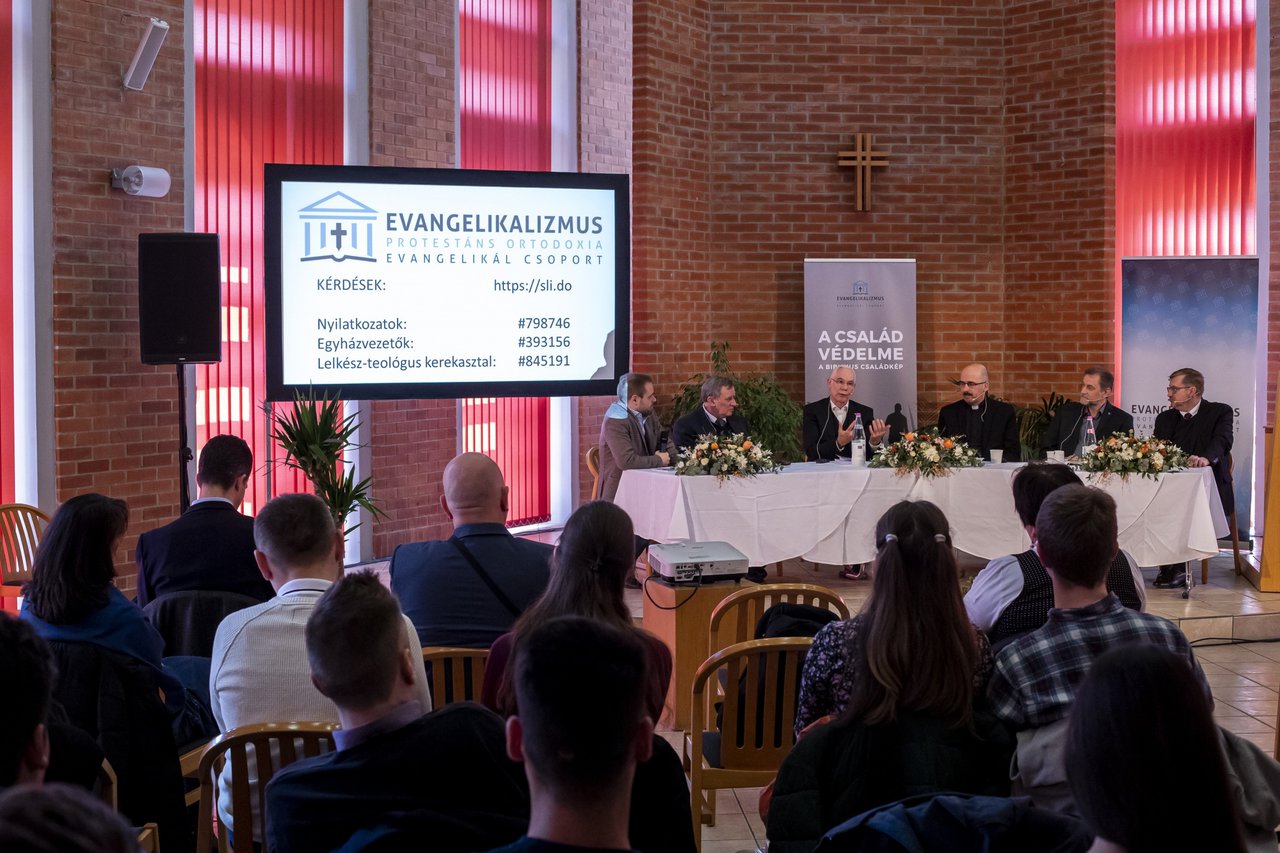
András Tamás Márkus moderated the discussion with the participation the retired Methodist superintendent István Csernák, Reformed Bishop Zoltán Balog, Lutheran Bishop Péter Kondor, Baptist Church President János Papp and Pentecostal Church President Albert Pataky.
Bishop Balog’s interlocutors were retired Methodist superintendent Isván Csernák, Lutheran Bishop Péter Kondor, Baptist Church President János Papp and Pentecostal Church President Albert Pataky. The discussion was moderated by András Tamás Márkus, a Reformed pastor.
At the beginning of the discussion participants raised the question whether at all we should talk about family protection? Zoltán Balog expressed his conviction that in all matters that arise in the world and affect the church, we must speak out. This is also a timely topic. He added that it was necessary to be clear about the issues that needed to be addressed. „Can homosexual people be pastor? No. Can they bless the marriage of same-sex couples? No.” This has always been the case, so the Bishop says these aren’t the main issues to be discussed. He also pointed out that there’re no simple yes-or-no answer. „Our answer must include what we think about love.”
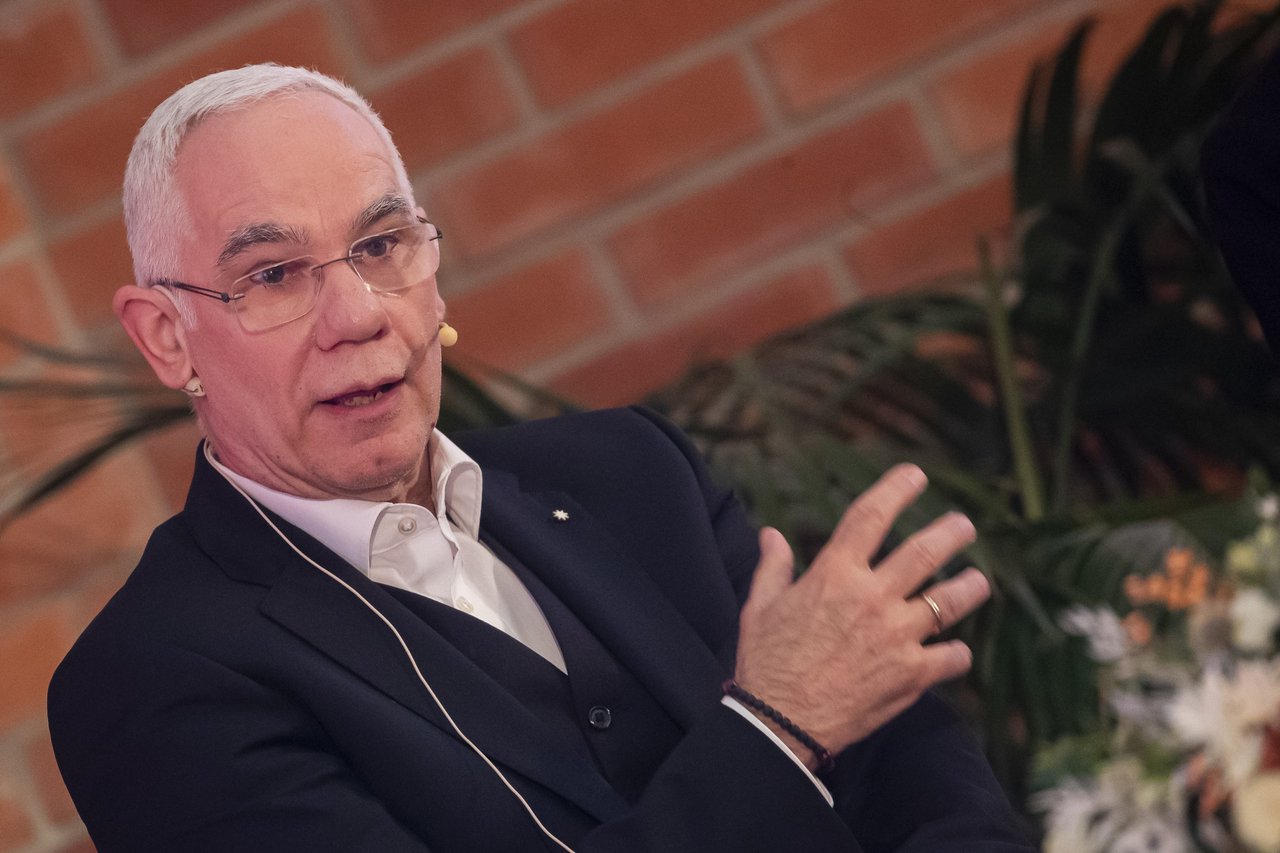
Bishop Zoltán Balog
„Watering down” the gospel is not the solution
Evangelical-Lutheran Bishop Péter Kondor said that by accepting the invitation, they had expressed their belief that the issue should be discussed. He says that the Creator has given man precise instructions for life, and when one wants to take the control out of God’s hands one is crushed under the weight of it. He warned that as Christians, we need to weigh how we can both preserve our confession and fulfil our mission in the world.
János Papp added that the issue of family protection is often put into perspective, saying that there are other, more urgent problems out there, but he believes that it needs to be addressed, which doesn’t mean that other problems are pushed to the background.
Albert Pataky added that the issue is important not because the people at the table think so, but because social pressure makes it important. And churches must respond to pressing social issues along the lines of their eternal message. Chasing popularity and „hyping” the gospel, Pataky says, won’t bring believers back to church, and it will hurt believers if they are not given the whole message, only parts of it which are popular.
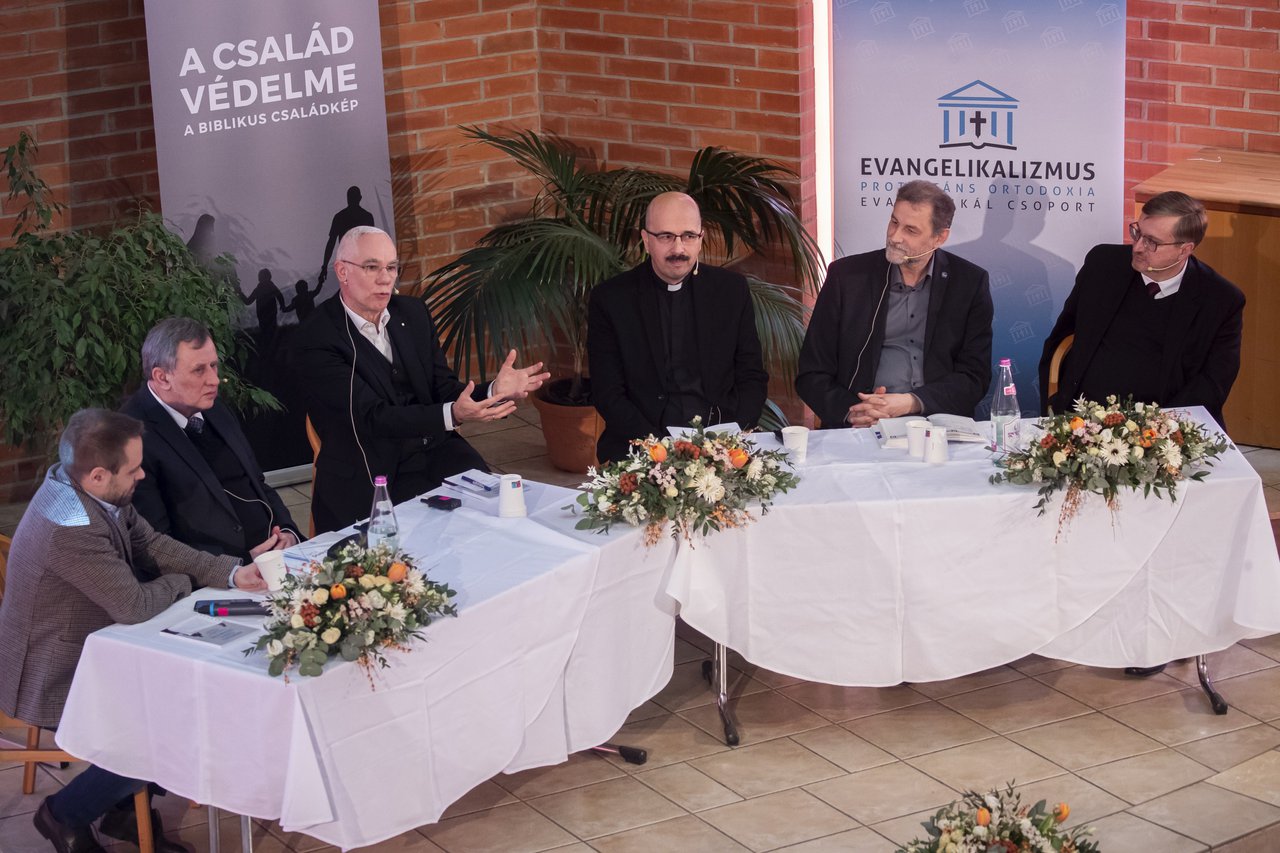
Without love there is no claim for Gospel thruth
“What should you say to someone who says there is no biblical family model?” the question was raised. According to János Papp, with the Bible in hand. He sees that people today tend to put down the Bible when thinking together and rely only on experience and their own thoughts. Just as Luther said, "Here I stand, I cannot do otherwise," we need to stand up and be outspoken.
Zoltán Balog warned that if you talk to someone who has a different opinion on this issue, it is worth giving them the benefit of the doubt and not immediately assuming that they are an agent of some power or lobby and want to do harm. “There are issues on which we can disagree and still stay together, in one church. And there are issues that cannot be overcome in this way, still we must strive to stay together as long as there is a chance to find each other in faith,” the Reformed Bishop said. Zoltán Balog also reminded that Christian truth cannot be found without love. “Without love, there can be no gospel truth”. But we have to stand to our belief and say it outloud. "We might become fewer in number, but we will remain a true fellowship of faith, not a community of people with the same interest or hobby."
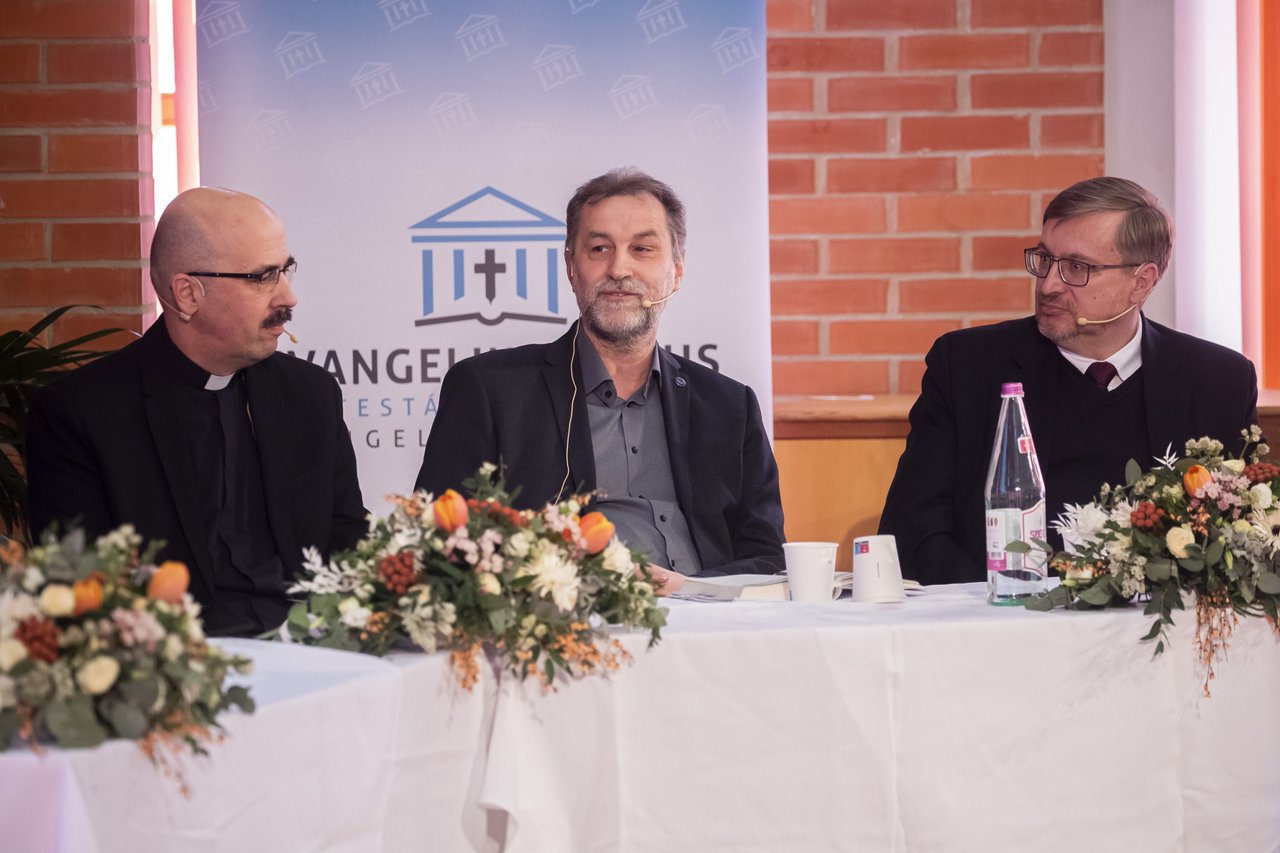
Péter Kondor, János Papp and Albert Pataky
As to how to identify the limits to the freedom of teaching within church communities? “Freedom of teaching can only be given within the framework of the Bible and confessional writings,” reacted Bishop Balog. He also pointed out that the Bible must be interpreted and reflected. No one should think that we have abandoned the biblical way just because women sit bareheaded in church. “On the contrary, at the beginning of letter to the Romans, two thousand years ago, the Apostle Paul recorded a fundamental principle of Christian anthropology which cannot be regarded as a mere documentation of a position that wouldn’t have relevance still today.”
According to the President of the Synod, public statements and position papers issued by the Church are secondary instruments. What truly imports is that the Christian community is united in love within itself, while conveying the message that we condemn no one, but welcome all as redeemed sinners welcome unredeemed sinners.
Speak more about those who are affected
According to János Papp, we shouldn’t approach others with hubris, but with certainty. István Csernák reminded that we must not forget that the Christians are on the way. We are walking with Christ and learning about the Bible, the Christianity and life. This must be kept in mind when taking a stand on this or any other issue.
Péter Kondor added that the unity of the Church is preached clearly and truly, and the sacraments are well administered. The nuances are harder to clarify, for example, it used to be unthinkable for those divorced to serve as pastors. He also recalled that many people feel polarised by extreme views, even though in Hungary the differing positions are much closer to each other than in the United States, for example.
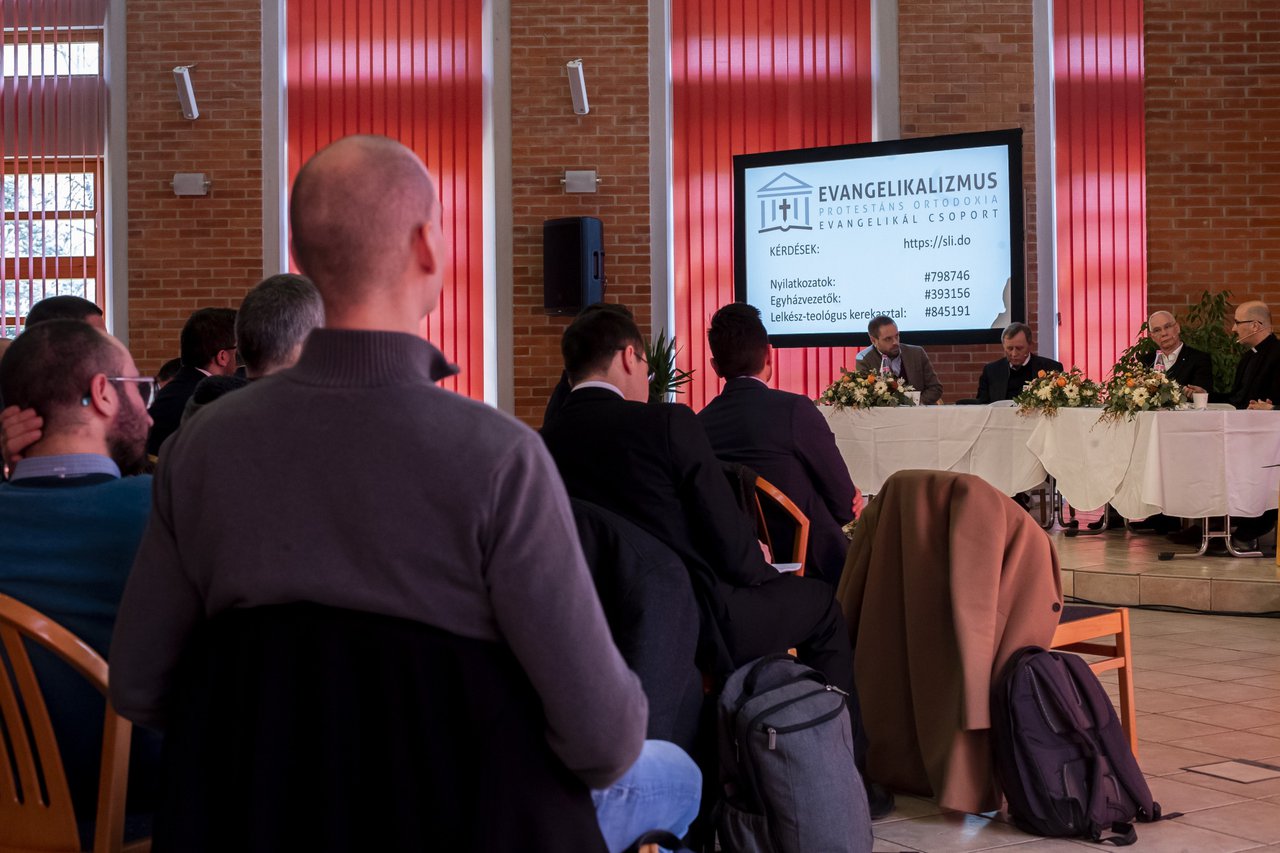
During the discussion, Zoltán Balog warned that there should be at least as much discussion about those who are affected and suffering from this issue as there is about what the churches are distancing themselves from. The pastoral aspect should be a priority in addressing critical issues, and more love and true attention should guide our discussions.
At the end of the event, the moderator, András Tamás Márkus, asked some of the questions that the audience had submitted. The first question was whether the Hungarian churches’ strong adherence to biblical teaching could lead them to break with their sister churches that accept gay marriage. Zoltán Balog said that this cannot be excluded; if we will have gone down that road in good conscience, striving to stay in together in communion and better understand each other, but will have failed, then separation will be an option. He stressed that such things are not new in the Christian Church: there are examples dating back to two thousand years. He mentioned that there were Christians who had bowed to the emperor and bowed down to him as gods, were expelled, only to be taken back later.
To the question how participants of the round table would deal with a same sex couple coming to their church and attending worship but maintaining their sexual orientation, participants stressed that they would try to offer understanding and sympathy, while stressing that there is no generalized solution for such cases. In his response Zoltán Balog warned that if we highlight this „sensational question” above other issues, it might make the impression to people outside the church, as if there was a cardinal sin and the church was fighting against it. In his understanding, the mentioned case should be addressed in the same way as when an unmarried heterosexual couple who approach the pastor, living in extramarital relationship. The pastor is there to engage in a discussion with them and start a journey together. There are also cases when it turns out that is not possible to go down the path together, but you have to start and give it a try, said Zoltán Balog. The Bishop added the importance of recalling stories of healing from sin, because there is healing from every sin.